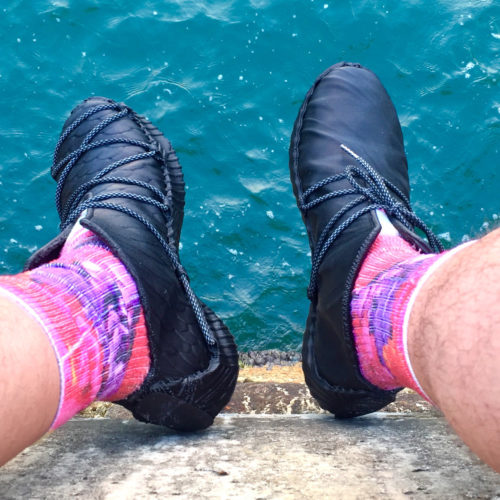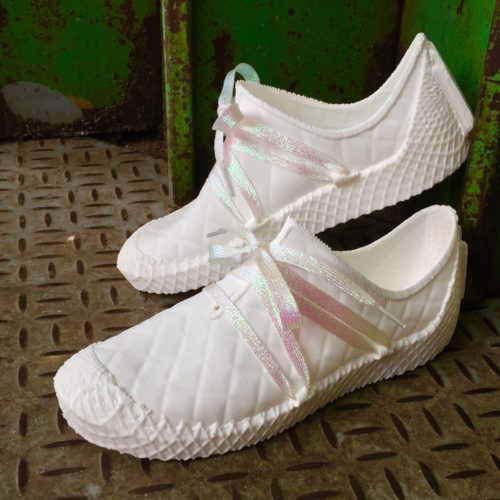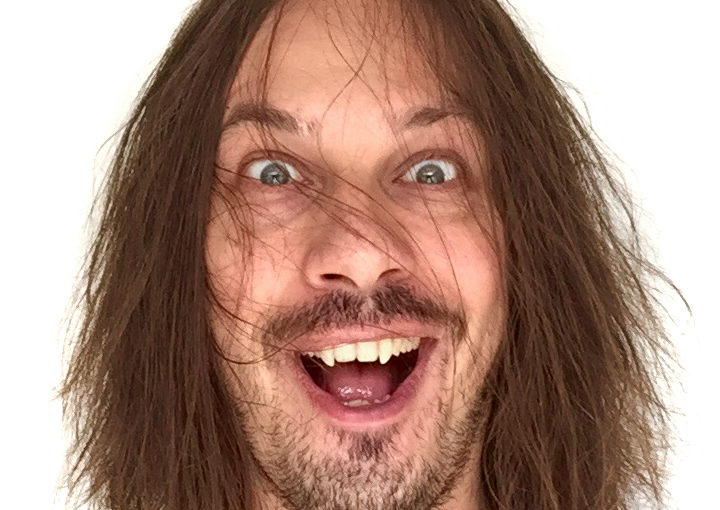Starting a business in a foreign country is definitely harder than doing so at home. You have to deal with a different culture, language barriers and bureaucracies which treat you with mistrust. So the deck is stacked against you. Despite that, migrants start a lot of businesses. In fact, they’re far more likely to do so than the people who don’t leave their home country.
In the UK they’re three times as likely to start businesses as those who haven’t moved. In the US, 13% of the population is made up of immigrants, while they start 28% of its new ventures. Even more astounding, more than half of the billion dollar new ventures in the US are started by immigrants.
So why – despite the extra hardships they face – are migrants more likely to start businesses and succeed in them when they do? To find out, I interviewed Philippe Holthuizen, who traveled half a world away from his native-born Holland to start not one but two companies.
In his first venture, he and his business partner wanted to design, “orthopedic fashion sandals. These would be custom made for their owners, using 3D printing to ensure the right orthopedic correction.” That didn’t quite go as he’d planned. So he tried a variation of the same theme. He became a 3D cobbler and the founder of FUSED Footwear. “In essence, this could only have happened after going through the last start-up. That was what really got me hands-on experience with 3D printing, which in turn made me wonder if the flexible materials available for 3D printing could stand up to the wear and tear that shoes go through.”
Walk a mile in his shoes

Okay, let’s deal with the elephant in the room. No, he’s not a foot fetishist. “It is simply a product that I’m very familiar with, and combining shoes with 3D printing fits a niche that hasn’t been developed much yet. It’s a field where a single person can still make a difference.”
In fact, his dream since puberty was to design cars. That’s what he studied in Eindhoven and Barcelona. That dream floundered when he understood what was involved, though. He realized he, “loved life too much to be a car designer. You need to be ruthlessly single-minded for that job.”
He also realized he had to move on. “I couldn’t stay in Barcelona. Product design jobs are thin on the ground and locals are preferred.” Fortunately, that was nothing new for him. As a child, his, “folks chose a new village within southern Holland and northern Belgium every three years or so. I never learned to grow roots, but you get other skills in return.” During those childhood years, he also discovered his creativity. He “was always drawing and taking things apart to see how they worked. I was even able to put them back together usually!”
So after Barcelona, he went back to Holland. But he didn’t return to the sleepy village life he’d known. Instead, he went to the country’s vibrant capital, Amsterdam. “Another amazing city that had a big influence in my development. I stayed for six years and had several creative jobs.”
One of the most important lessons he learned? “I don’t really (want to) fit into the business culture of bigger companies. Too many organizational layers and politics annoy me.”
Once a vagabond, always a vagabond
After six years, he got itchy feet again. This time he didn’t just move across the continent, though. “My ‘big’ breakthrough came when I… found a job at an amazing shoe company in Guangzhou, China.” The company was called United Nude. While there, Philippe got to work on some unique shoe designs, like this one for Iris van Herpen as well as a Zaha Hadid collaboration.
They are “avant-garde and they were looking to develop more of their shoes using Computer Aided Design (aka 3D skillz). This was an awesome adventure with lots of great memories. I’m proud of what I learned there and of the shoes that we developed.”
He also realized he felt quite at home in this part of the world and decided to stick around. “I found a new job in Johor Bahru, Malaysia, to develop a range of kitchen appliances. It paid crazy well, but the company organization was messy. I think it’s fair to say that it was a wishful project of a factory owner, and while he had the best intentions, creating a product line from scratch is incredibly hard and expensive. I was ready to call it quits after the first year, but moving me to Singapore and promises of improvement made me sign for another year.”
“Of course no real improvements came. I am glad I stuck it out for another year though, as my time in Singapore allowed me to make new incredible friends and the extra savings allowed me to make some mistakes while pursuing my current passion.”
After that, he moved to Hong Kong, where he started those aforementioned companies. “As I already had all the necessary skills, a lucky coincidence of an unplanned life, I had to investigate. Initially, I gave myself three months and a limited budget (my precious savings) to see how far I could get. This was May 2017. I bought an entry-level 3D printer online and set up shop in a local co-working space.”
Which brings us to today.
So why 3D design?

“Combining shoes with 3D printing fits a niche that hasn’t been developed much. It’s a field where a single person can still make a difference. From a personal point of view, I particularly love the speed with which I can evaluate my designs. With traditional shoemaking, the process is laborious. But with this new way to produce shoes, I can make a design one day, and have the physical product in my hands the next day. As a product designer that’s huge!”
So big, in fact, that 3dstartpoint.com recently said Philippe Holthuizen is has managed to disrupt the footwear industry in the seven months since he founded FUSED Footwear.
That’s not the only reason he chose 3D-design, though. “I also find it interesting to develop a production process that is quite counter to our current mass production techniques. Speaking as a sneakerhead specifically, that industry is a hodge-podge of slave wages, toxic materials, over-production and long distance shipping. I honestly don’t think 3D printing will replace any existing structures. It will likely be too niche for that. But it will offer an alternative, and it has plenty of potential to grow.”
Of course, it’s not all rainbows and sunshine.
“I do have to admit that now that the shoes are done, I’m running into a bit of a wall. I need to figure out how to sell stuff. I’ve never thought of myself as much of a salesman. Sure, as a designer, you have to present your work, and you learn how to spin a good story. But convincing people to put money down without personally being there is a whole ‘nother ball game.”
“So I’m now at the point where I’ve realized and accepted that I need to get some help. I’m starting with asking some people who I trust for advice, but I can also imagine finding a business partner who has experience in developing business-to-customer start-ups. We’ll see, fingers crossed.”
Still, he’s got a functioning business in a (very) foreign country, when most of us don’t even manage to create something like that in our own backyard. How did that happen and what can the rest of us learn from this?
During our conversation, I identified four characteristics.
The willingness to try new things

Possibly the most obvious one is his open-mindedness. Philippe constantly seemed willing to try new things, go to new places and embrace new experiences. He talked about such things as, “having been allowed, through the journey, to develop myself and follow my curiosities.”
This effect is well established in the scientific literature. As I’ve mentioned previously, a broad meta-analysis (or a study of studies) reveals that those who travel become more open-minded. Similarly, those who are more open-minded have an advantage when they’re abroad. It helps you adjust more quickly and take advantage of the opportunities you encounter.
This was something our discussion actually touched upon. He told me how he realized while considering his venture he already had most of the skills. He said this was “a lucky coincidence of an unplanned life.”
But he’s being humble there. For, as Louis Pastor said, “Fortune favors the prepared mind.” And his many jobs and many experiences in the different corners of the world he’s visited helped prepare himself better than one place and one job could have.
Creativity
Philippe’s creativity is also on full display – both in our interview and when you consider the design of his shoes. Here too his travels have helped in not one but two ways.
- There were his experiences when he was young. When you move frequently as a youth you often leave friends behind. As a result, you have to learn to entertain yourself – something which has been shown to nurture creativity.
- As the saying goes, creativity is about ‘thinking outside the box’ and finding original ways to look at things. The biggest box of most our lives are the cultures we are born into. Even worse, most of us remain completely oblivious to its existence. Of course, the moment you move abroad that changes. You realize how many of the things you thought were absolute, are in fact relative. This encourages new perspectives.
Again, it isn’t just me saying that travel increases creativity. Studies support this claim. People who travel more are more likely to be creative and with travel making people more creative as well.
His perspective of failure

Then there is his ideas about failure. Philippe seems less bothered by failing than many others do. Take his endeavor with the orthopedic sandals, for example. Many people would have been deeply distraught when this didn’t succeed. Philippe didn’t even discuss that aspect of it, however. Instead, he saw it only as a lesson learned.
He talks about how he “realized I came into it rather naively. It was a pretty hard lesson for me, one that I needed, and I think it helped me tremendously with stepping up my thought models regarding ‘doing business’.”
He’s got a similar outlook regarding his current endeavor. “I know that I’m not on an easy path with the shoes, but it’ll definitely be interesting! And if it doesn’t work out, I’m reasonably sure I can trust myself to find a new path.”
Another place where we can see this back is in his rejection of corporate structures. After all, almost everybody says they want to be their own boss when they’re succeeding. Not half as many want to take responsibility for their own failures, though. But when you can reimagine failure as lessons learned, they become a great deal easier to deal with.
All this is obviously a huge deal for an entrepreneur starting a company. It is also something we also tend to learn more quickly abroad. Philippe touched upon the reason why. “With all the moving in my youth, I find it relatively easy to accept that people come and go. Although I guess it’s been mostly me who has been doing the coming and going.” And though he’s talking about people, this is no less true of ideas and opportunities. Not only do you learn to embrace the new and leave what no longer works behind, but it becomes less emotional to do so.
Community

The final thread is that of the people around you. Yes, I’ve discussed community plenty of times before in other articles.But that’s because it’s so vitally important to our success. There are two big reasons community matters so much.
The first one is obvious and much discussed. Philippe mentions it himself. “make sure you’ve surrounded yourself with smart people [and] a mentor if you can find one.” The truth is, expat communities are often filled with smart people. And sure, in part that’s because people who travel are more likely to be open-minded, flexible and to have tried many things.
Just as important, though, it takes resources and opportunities to move abroad. A person barely staying afloat in a low-skill job might dream of travel but lack the means. So, the people you meet in the expat communities are going to have better-paid jobs and more expansive skill sets.
And that’s exactly the kind of people you need around you when you’re starting a business. So when Philippe says he’s hoping to find a “business partner who has experience in developing business-to-customer start-ups” he’s more likely to do so, which will contribute to his success.
The second reason is more subtle. You’re shaped by the community you’re in. Studies have shown that very unexpected things spread through social groups. For example, if many of your friends are overweight, you’re likely to be as well. This is also true of depression and loneliness. Largely, that’s down to us taking over the norms and values of the people we hang out with.
Spend time with alcoholics and you’re likely to drink too much. Hang out with entrepreneurial people, however, and you’re going to be far more likely to be entrepreneurially minded. Yes, that does mean the high percentage of migrants starting businesses is at least in part self-perpetuating.
And so we have immigrant entrepreneurs
All these skills, perspectives and abilities do two things. They:
make sure people who travel are more likely to be entrepreneurs
make it more likely to succeed when they do go down that road.
That’s why such high percentages of businesses are started by migrants and – just as importantly – why so many of these businesses succeed and become billion dollar businesses. That also means we should really revise how we treat and view immigrants. For rather than being the drain on the economy many perceive them to be (a bald-faced lie), they are the motors which keep it running.
Philippe Holthuizen’s final thoughts

Philippe had a few thoughts of his own to add to my assessment: “In the end, location doesn’t really matter… Most likely, you’ll have an idea that gets you excited and just started working out the possibilities. Once you’ve convinced yourself, you’ll go ahead with it anyway.”
Then there was the bit about the smart people: “make sure you’ve surrounded yourself with smart people [and] a mentor if you can find one.”
And finally, he emphasized finances. “If you’re not doing this already, learn how to manage your money. See it as a tool, learn to have savings, and how to make those savings work for you. Freedom from financial worries will allow you to pursue your passion, whatever it may be [and] survive for a year with little to no income.”
Wise words!
Like what Philippe is doing and want to help him with his money management? Go over to FUSED Footwear and buy yourself a pair of his awesome shoes. Even better, if you think you’re the business partner with experience in developing business-to-customer startups then you can reach out to him on his contact page.
Like what you read? Want to stay up to date with Vagabond Writers? Then follow us on Facebook or Twitter, or join our newsletter.
Need freelance writing done? Check out my portfolio and get in touch!

I think Philippe is positively brilliant. His success is a given. The guy is talented beyond words. Great write up.
He is! Thanks Dan!